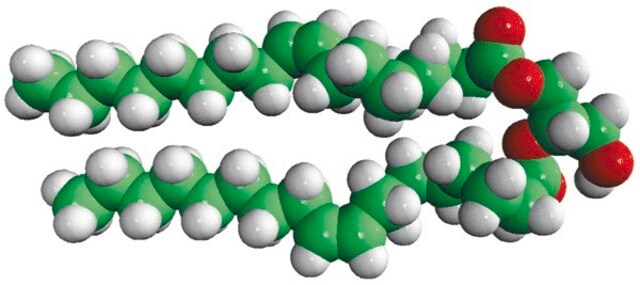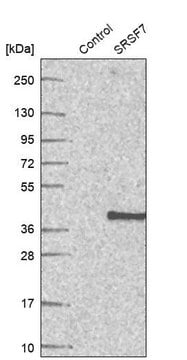ABS192
Anti-phospho-SRPK2 (Ser497) Antibody
from rabbit, purified by affinity chromatography
Synonyme(s) :
SRSF protein kinase 2, SFRS protein kinase 2, Serine/arginine-rich protein-specific kinase 2, SR-protein-specific kinase 2, SRSF protein kinase 2 N-terminal, SRSF protein kinase 2 C-terminal
About This Item
Produits recommandés
Source biologique
rabbit
Niveau de qualité
Forme d'anticorps
affinity isolated antibody
Type de produit anticorps
primary antibodies
Clone
polyclonal
Produit purifié par
affinity chromatography
Espèces réactives
hamster, mouse, human
Réactivité de l'espèce (prédite par homologie)
rat (based on 100% sequence homology), Xenopus (based on 100% sequence homology)
Technique(s)
western blot: suitable
Numéro d'accès NCBI
Numéro d'accès UniProt
Conditions d'expédition
wet ice
Modification post-traductionnelle de la cible
phosphorylation (pSer497)
Informations sur le gène
human ... SRPK2(6733)
Description générale
Spécificité
Immunogène
Application
Signaling
Developmental Signaling
Qualité
Western Blotting Analysis: A 1:500 dilution of this antibody detected SRPK2 (Ser497) in 10 µg of NIH3T3 cell lysate and Insulin treated NIH3T3 cell lysate.
Description de la cible
Forme physique
Stockage et stabilité
Remarque sur l'analyse
NIH3T3 cell lysate and Insulin treated NIH3T3 cell lysate
Clause de non-responsabilité
Vous ne trouvez pas le bon produit ?
Essayez notre Outil de sélection de produits.
Code de la classe de stockage
12 - Non Combustible Liquids
Classe de danger pour l'eau (WGK)
WGK 1
Point d'éclair (°F)
Not applicable
Point d'éclair (°C)
Not applicable
Certificats d'analyse (COA)
Recherchez un Certificats d'analyse (COA) en saisissant le numéro de lot du produit. Les numéros de lot figurent sur l'étiquette du produit après les mots "Lot" ou "Batch".
Déjà en possession de ce produit ?
Retrouvez la documentation relative aux produits que vous avez récemment achetés dans la Bibliothèque de documents.
Notre équipe de scientifiques dispose d'une expérience dans tous les secteurs de la recherche, notamment en sciences de la vie, science des matériaux, synthèse chimique, chromatographie, analyse et dans de nombreux autres domaines..
Contacter notre Service technique







